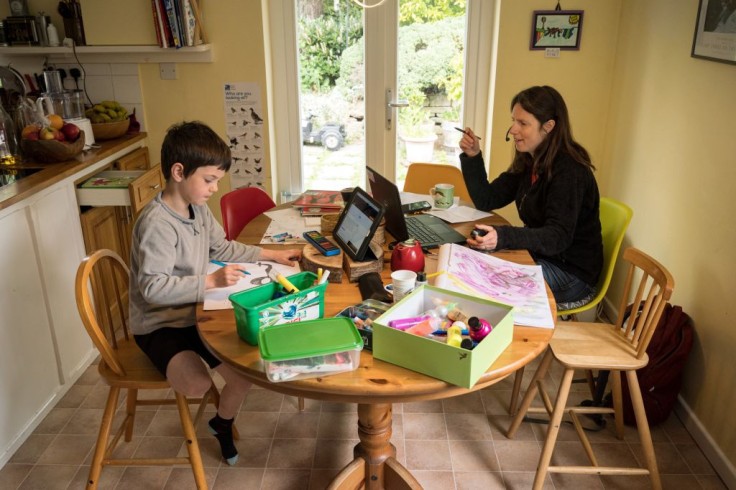
Financial literacy is a crucial life skill that every child should learn from an early age.
In a world where money plays a significant role in our daily lives, teaching children about financial responsibility, budgeting, and wise decision-making can set them on a path towards a secure and prosperous future.
By instilling financial literacy in children, parents have the opportunity to shape their mindset and equip them with the tools necessary to navigate the complexities of personal finance.
It emphasizes the importance of open and frequent conversations about money with your children, creating an environment where financial education becomes an integral part of their upbringing.
These "money talks" serve as valuable teaching moments, allowing parents to impart knowledge, values, and practical skills related to money management.
Teaching financial literacy to children is not a one-time event but an ongoing process that evolves as they grow and face new financial challenges.
In this article, we will explore ten effective strategies to teach financial literacy to your children. Let's dive in and discover how you can start having "money talks" with your kids.
10 Ways to Teach Financial Literacy to Your Children
1. Have frequent discussions about money
According to Fatherly, one of the most effective ways to teach financial literacy is to have frequent discussions about money with your children. Engage them in age-appropriate conversations about budgeting, saving, spending, and investing. By normalizing these discussions, you create a foundation for financial education and open the door for future learning opportunities.
2. Teach them about wants versus needs and smart shopping
Help your children distinguish between wants and needs. Teach them the importance of prioritizing essential expenses over discretionary purchases. Engage them in smart shopping practices by comparing prices, seeking deals, and making informed purchase decisions. Encourage them to think critically about their buying choices to develop a frugal mindset.
3. Use a clear jar to save
Introduce the concept of saving by using a clear jar or piggy bank. Teach your children to set aside a portion of their allowance or any money they receive as gifts. As the jar fills up, they visually see their savings grow, providing a sense of accomplishment. This tangible approach helps them understand the value of delayed gratification and the importance of saving for future goals.
4. Set an example
As per Ramsey Solutions, children often learn best by observing their parents' actions. Be a positive role model for your children by practicing good financial habits. Show them responsible money management, such as sticking to a budget, avoiding unnecessary debt, and saving for emergencies. When they witness your financial prudence, they are more likely to emulate those behaviors.
5. Show opportunity cost
Teach your children about the concept of opportunity cost-that when you choose to spend money on one thing, you give up the opportunity to spend it on something else. For example, if they spend their money on a video game, explain that they won't have that money available for another desirable item. Understanding opportunity costs helps develop critical thinking skills and encourages thoughtful decision-making.
6. Avoid impulse buys
Encourage your children to think twice before making impulsive purchases. Teach them to wait a day or two before buying something they want to ensure it's not just a passing desire. By practicing delayed gratification, they learn the value of thoughtful spending and reduce impulsive buying habits.
Read Also: Top 10 Science-Based Recommendations for Parents To Help Teens Use Social Media Safely
7. Discuss ways to earn money
As recommended by CNBC, engage your children in discussions about different ways to earn money. Encourage them to explore entrepreneurial opportunities, such as starting a small business or offering services to neighbors and friends. By understanding the relationship between effort and income, they develop a strong work ethic and entrepreneurial mindset.
8. Choose a charity and give
Teaching children about the importance of giving back is a valuable lesson in financial literacy. Involve them in choosing a charity or cause that resonates with their interests. Encourage regular contributions, whether through monetary donations or volunteering time. This practice fosters empathy, gratitude, and a sense of social responsibility.
9. Create a budget
Introduce the concept of budgeting to your children early on. Help them create a simple budget by dividing their money into different categories: saving, spending, and giving. Teach them to allocate their resources wisely and track their expenses. Budgeting empowers children to make informed financial decisions and helps them develop self-control and discipline.
10. Explain how taxes work
While the concept of taxes might seem complex, introducing it in a simplified manner helps children understand the basics. Explain that taxes are a way to contribute to public services and community development. Teach them about sales tax, income tax, and property tax, and how these funds are used for schools, roads, and other public resources.
Teaching financial literacy to your children is an invaluable investment in their future.
By having "money talks" and implementing these ten strategies, you can equip them with essential skills for lifelong financial well-being.
Remember to foster open and ongoing conversations, be a positive role model, and provide practical experiences that empower them to make informed financial decisions.
With your guidance, your children will develop a strong foundation of financial literacy to navigate the complex world of money.